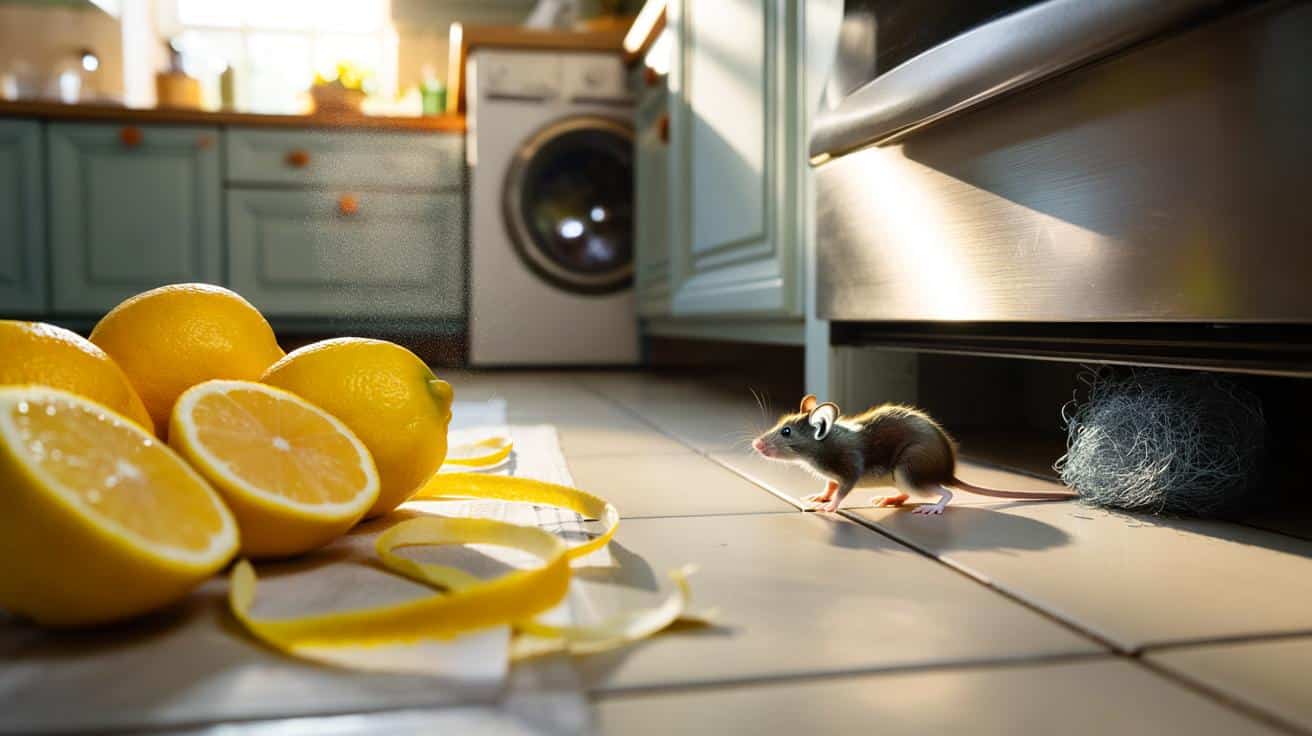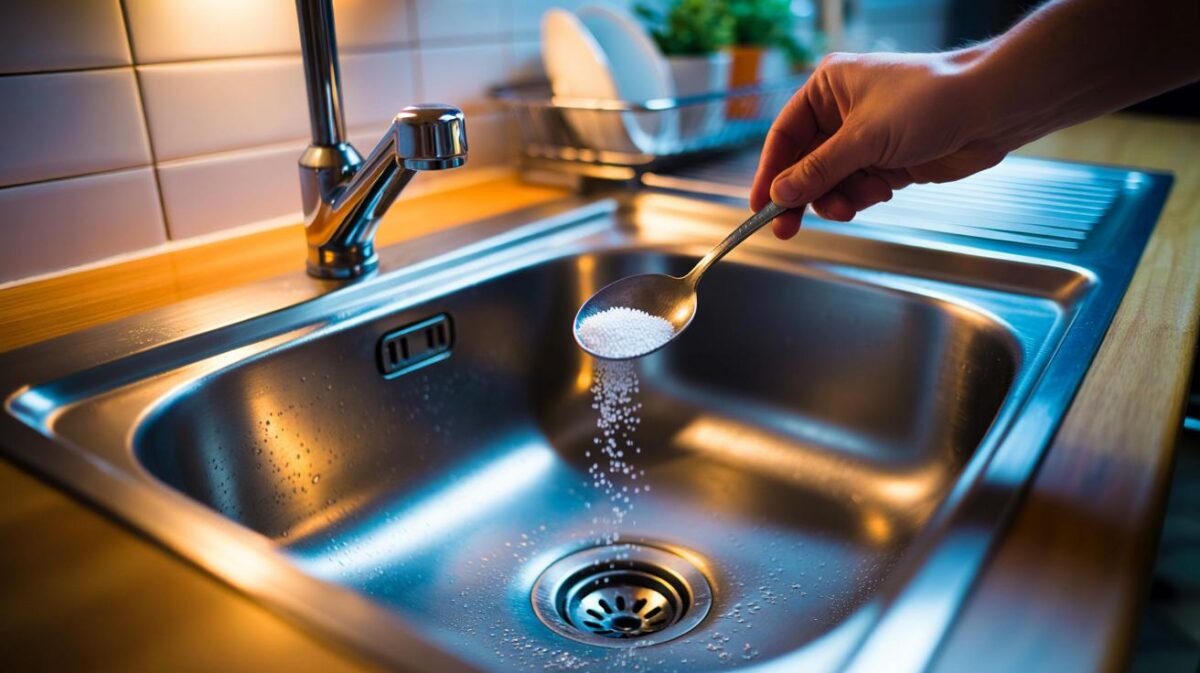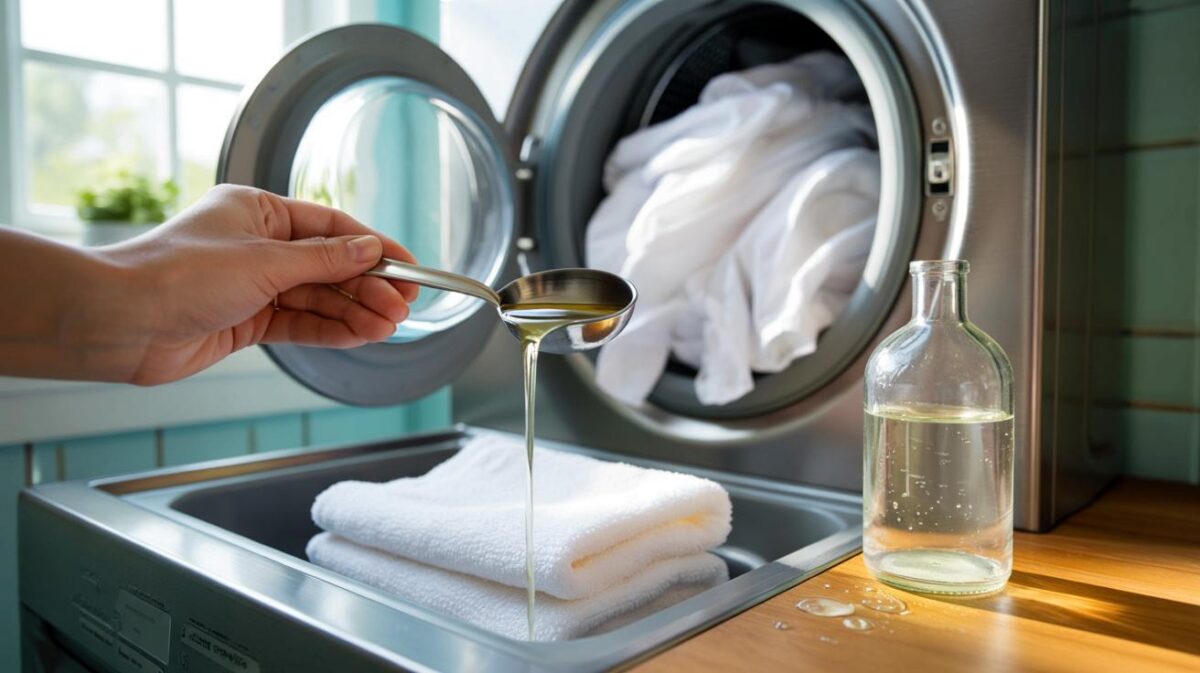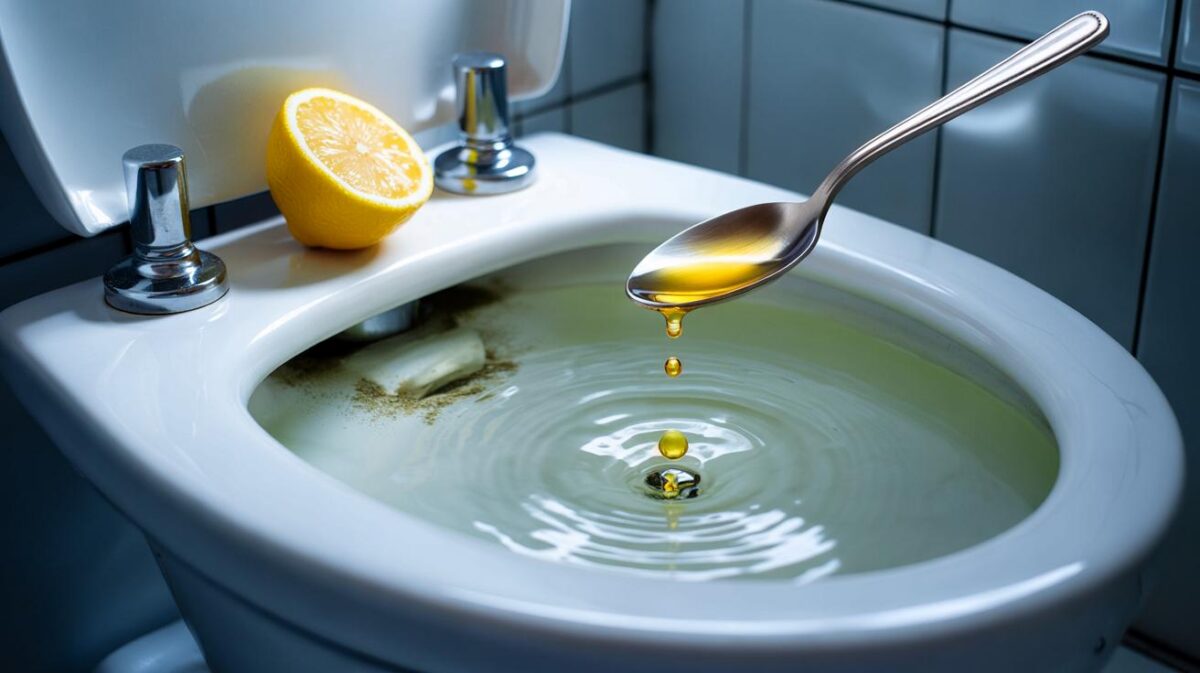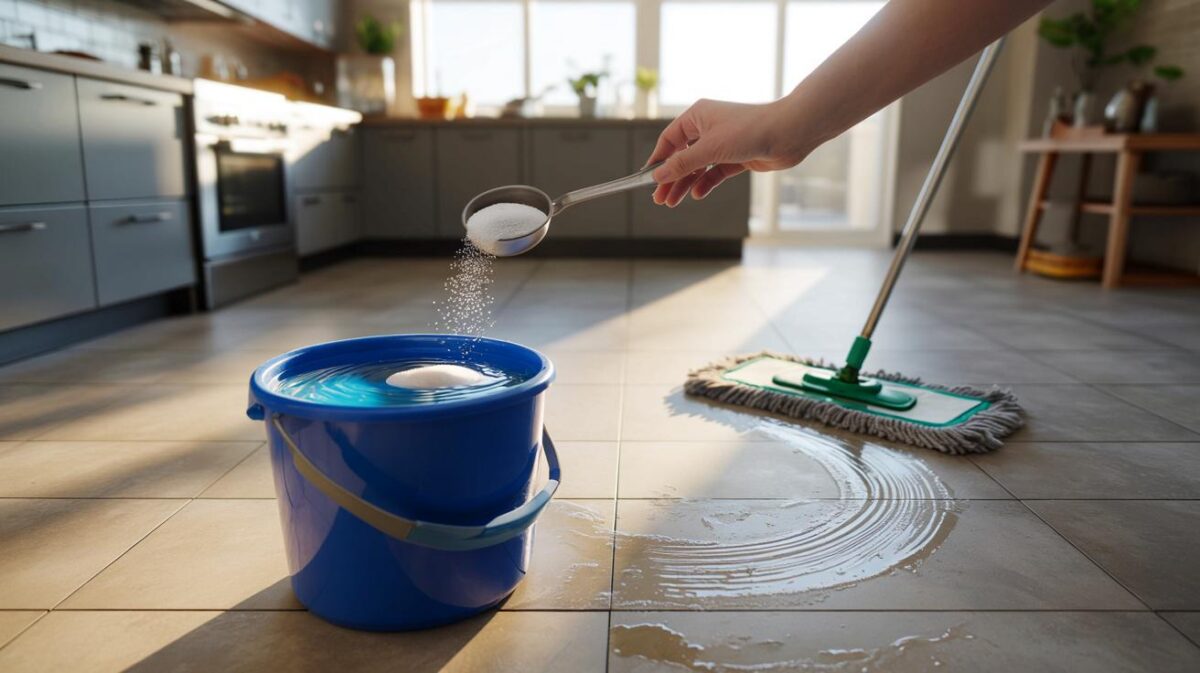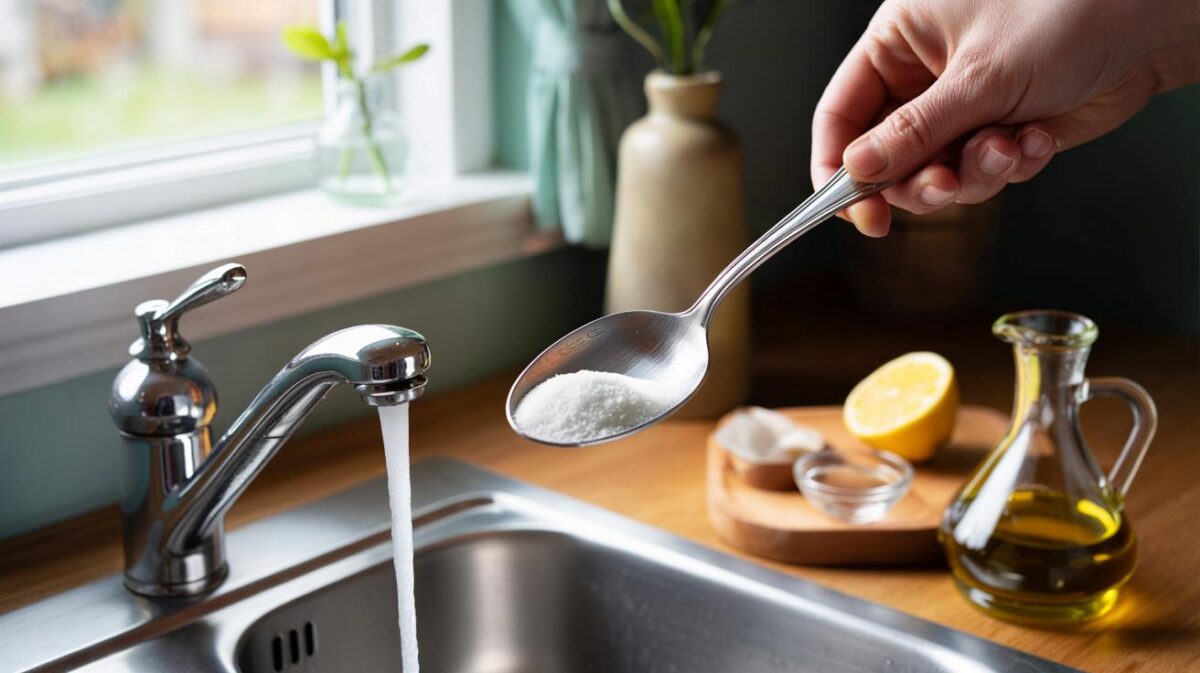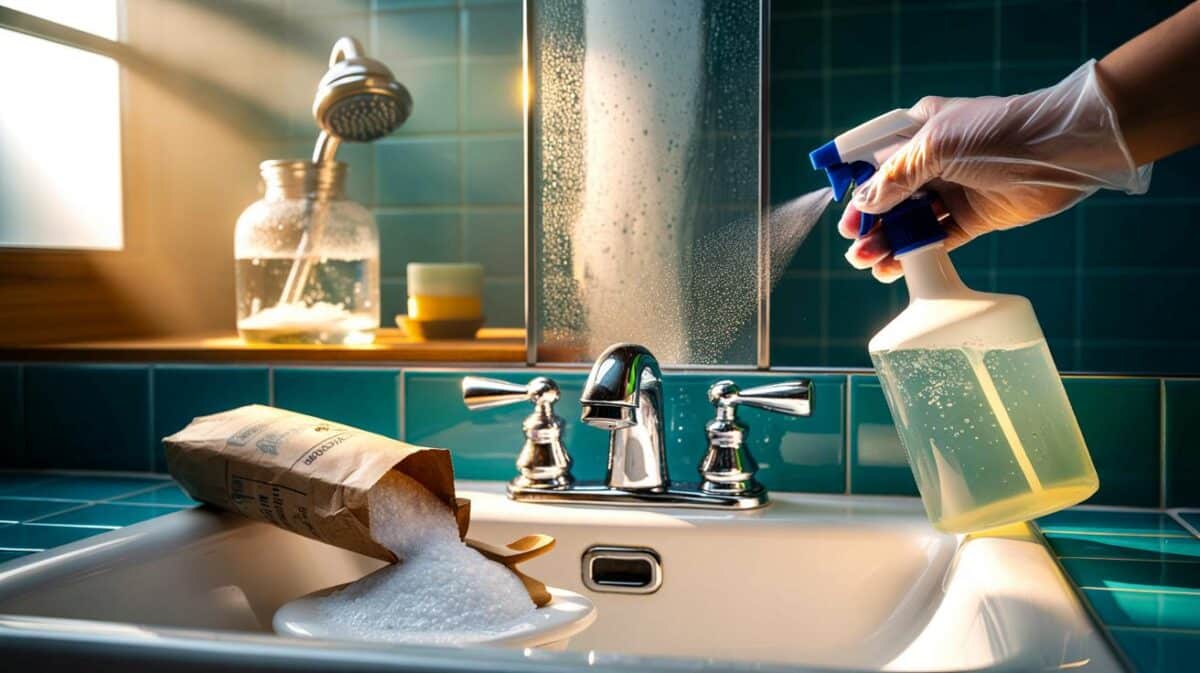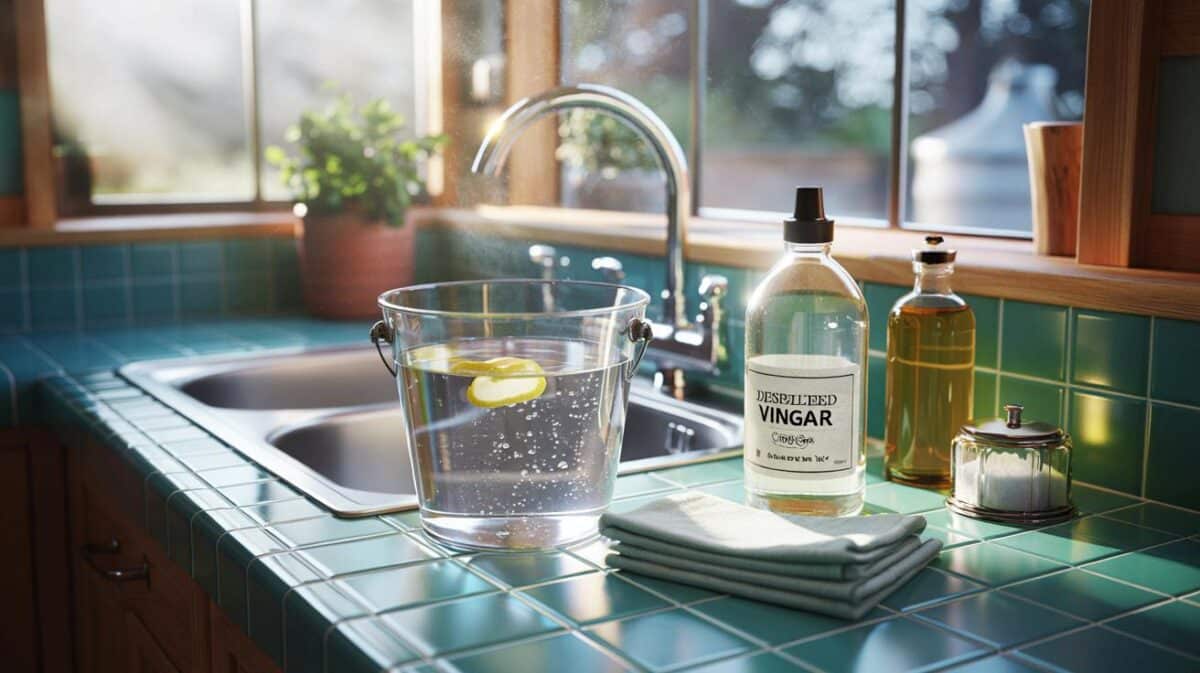You spot the tell-tale nibbles in the bread bag. A few black grains behind the bin. You want a fix that doesn’t involve traps, bait blocks, or anything toxic near the kettle. The answer might be sitting on your fruit bowl, bright as a small sun and twice as useful.
I was standing in the kitchen, half-listening to the boiler tick, when a small shadow dashed from behind the washing machine and froze. We both did. I reached for the bin lid, it bolted, and my eyes dropped to the lemon I’d sliced for tea. The air was sharp, clean, the sort of scent that cuts through leftover cooking and late-night nerves.
I wiped the counter with a rag dabbed in lemon, almost without thinking. The mouse sniffed, skittered, and pulled away. The next night, I tried something deliberate: peels along the skirting, a quick citrus mist under the sink. Movement stopped. Silence stretched out across the tiles. Then, a week of peace.
One small fruit, big reaction. Curious, right?
The lemon effect: why one fruit can nudge mice elsewhere
Mice don’t just sneak; they map. They live by scent, tracing tiny highways made of oils and crumbs and the ghost of last night’s cooking. Lemon barges into that world with a clean blade of smell. It’s loaded with d‑limonene and citral, volatile compounds that lift fast and hit the nose harder than you think.
Put simply: lemon disrupts the story the house is telling. It masks the cues that say “food here, safe route there,” replacing them with a signal that reads all wrong to a mouse. To us, it’s bright and kitchen-fresh. To them, it’s a wall.
Ask any pest technician about scent-based deterrents and you’ll get a wry smile. They see the patterns. Autumn brings a bump in call-outs as the nights draw in, and kitchens become the stage. A landlord in Salford swears by lining kickboards with lemon peel the moment temperatures drop; a bar in Bristol used lemon-infused wipes before mop-up, and the night sightings fell away. It’s not magic. It’s pressure.
There’s science tucked inside the story. Citrus oils are potent and evaporate quickly, which is exactly why they work as a signal bomb for noses close to the floor. The molecules flood the air, cling to surfaces, and muddle the chemical breadcrumb trail rodents rely on. That strong odour also competes with the scents mice use to communicate with each other.
It fades, though. That’s the catch with nature’s tools: they’re brilliant, then they’re gone. The lemon’s power is in the freshness of its oils, not in a permanent barrier. Think of it as nudging behaviour, not rewriting it. Pair it with hygiene and block the tiny doorways, and you change the script.
How to use lemon, step by step, without turning your house into a juice bar
Start with the peel, not the juice. Zest a lemon in chunky strips and lay the peels where mice travel: under the sink, along skirting behind the cooker, inside the cupboard with the cereal, and near any gap you can slide a pencil into. Make a quick spray by steeping peels in just-boiled water for 20 minutes, then decant and spritz lightly along edges and corners.
Refresh the peels every 48–72 hours. That’s when the scent drops. Wipe high-traffic spots with a cloth dabbed in fresh lemon oil or the peel infusion, then dry the area so it isn’t sticky. A cotton ball with a touch of lemon essential oil can ride inside a cupboard, tucked out of sight. Keep it dilute: 5–8 drops per 200 ml of water does the job.
Clean first. Lemon works best when the snacks and crumbs are gone, and entry points are narrowed. Pack steel wool into gaps, use a proper sealant around pipe penetrations, and move that bag of birdseed into a lidded tub. Soyons honnêtes : nobody does a deep clean every day. So pick the handful of places mice actually use and be consistent there.
Don’t flood the floor with juice. Sticky sugar brings ants, and too much moisture isn’t kind to wood. Lemon is a scent tool, not a mop. Keep citrus away from marble and some natural stone, which can etch. If you’ve got a curious cat or a dog that licks everything, use peel pouches tucked behind plinths rather than open bowls soaked in oil.
We’ve all had that moment where a rustle in the night makes the house feel crowded. That’s why simple rituals help. Lemon is a small habit with an outsized effect when you stay with it.
“Scents don’t kill mice. They change mouse choices,” says a veteran technician I spoke to. “If the kitchen stops smelling like an easy meal, rodents stop taking the risk.”
It helps to think of lemon as part of a kit. One fruit for smell, one roll of steel wool for holes, one airtight tub for the bird food.
- Place peels at: the back corner under the sink, behind the cooker, in the boiler cupboard, along the loft hatch, and near that tiny gap behind the washing machine.
- Replace every 2–3 days. Top up the spray when the scent drops.
- Layer with a sweep-and-wipe before bed three nights a week. Small, steady wins.
- Add snap traps or humane traps if you see fresh droppings daily. Lemon is a deterrer, not a cure-all.
When lemon isn’t enough — and what to pair it with
Lemon shines as a nudge, not a silver bullet. If you’re seeing droppings each morning, or you hear chewing in the walls, it’s time to escalate. Blend your citrus habit with a tidy routine, a sealing session for the gaps, and proper traps in travel lanes. Mix scents if you like: lemon by the sink, peppermint near the bin, clove in the cupboard. Different noses, same message.
A word on scale. One mouse is a guest that can be sent packing with pressure and patience. A family is a pattern, and patterns have roots. That’s when a professional walk-through can save you weeks. Ask them to trace entry points and build a plan you can actually stick with. As sharp as a snapped twig.
It isn’t about perfection. It’s about changing what your house says to a mouse. Keep the food sealed, the edges dry, the scents fresh, and the silent paths closed. The lemon just turns the volume up on your good habits.
There’s something pleasing about solving a modern problem with something that grew in the sun. Lemon is cheap, bright, and forgiving; it will not stain your story if you try it and move on. Share a bowl with your tea, pinch the peel for the cupboards, and see what happens behind the plinths and pipes.
The quiet that follows a few days of citrus feels like a small victory. Not a war won, more like a truce nudged into place by one honest scent. If it works for you, tell someone who’s listening to the night and wishing it away. These little truths travel better than warnings.
Mix your own rhythm. Lemon on Mondays, traps checked on Wednesdays, a five-minute gap hunt on Sunday with some music on. Small things add up, and your house starts to smell like your home again, not a map for whiskers. **No poisons.** No drama. Just a fruit that earns its place on the counter.
| Point clé | Détail | Intérêt pour le lecteur |
|---|---|---|
| Fruit that repels mice | Use lemon peel and light citrus spray to disrupt scent trails | Simple, low-cost, non-toxic first step |
| How to apply | Peels along skirting and cupboards; refresh every 48–72 hours | Clear method you can try tonight |
| Limits and pairing | Combine with sealing gaps, hygiene, and traps if activity continues | Realistic results, faster relief, fewer surprises |
FAQ :
- Does lemon get rid of mice completely?Lemon deters and disrupts, but it doesn’t remove a nest. It’s perfect as a first-line defence and as part of a wider plan.
- How often should I replace the peels?Every 2–3 days. When the scent fades, the effect drops. A quick top-up keeps the message strong.
- Is lemon essential oil better than fresh peel?Fresh peel is safer around surfaces and still potent. Oil is stronger, so dilute well and use sparingly in hidden spots.
- Will lemon attract ants or damage surfaces?If you pour juice and leave it wet, yes, it can attract ants and etch some stone. Use peel and light sprays, then wipe dry.
- What if I still see droppings after a week?Layer your approach: seal gaps with steel wool, tidy food sources, and place traps along edges. If activity stays high, call a professional.
